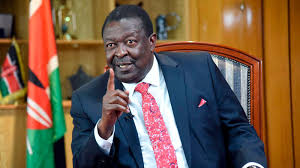
Kenyan Government propose new work permits for foreigners in new Bill


The government has proposed a new set of work permits for foreigners as envisaged in the Kenya Citizenship and Immigration (Amendment) Regulations, 2024.
Through the regulations, the government is seeking to introduce Class “P” permits for personnel from the United Nations, diplomatic missions, inter-governmental organisations and international NGOs accredited to or operating in hardship regions within neighbouring countries.
The regulations announced via a gazette notice on Monday, December 16, 2024, also seek to introduce Class “R”, a specialised permit for citizens of East African Community (EAC) member states.
“In a bold step to position Nairobi as Africa’s multilateral hub, the government has introduced new work permits under the Kenya Citizenship and Immigration (Amendment) Regulations, 2024, announced via gazette notice on Monday. The proposed amendments aim to modernize and streamline work permit regulations, advancing national interests through the creation of digital jobs, smoother regional integration, and fairer practices. These reforms will not only bolster foreign exchange inflows but also solidify Kenya’s standing as a leading international and financial hub,” Prime Cabinet Secretary and Cabinet Secretary for Foreign Affairs Musalia Mudavadi stated.
According to Mudavadi, who also serves as the Cabinet Secretary for Interior, the new regulations champion regional cooperation, economic opportunity, and global engagement, making it a hub where partnerships, talent, and investment can flourish.
“As part of efforts to elevate Kenya’s role as a diplomatic and multilateral center, the new Class ‘P’ permit has been introduced. This permit will cater to personnel from the United Nations, diplomatic missions, inter-governmental organizations and international NGOs accredited to or operating in hardship regions within neighboring countries. The reforms also include the creation of Class ‘R’, a specialized permit for citizens of East African Community (EAC) member states,” he added.
“This permit simplifies and consolidates access for all categories of EAC nationals whether investors, professionals, skilled and unskilled workers, traders, farmers, or manufacturers without imposing any charges. Proof of citizenship from an EAC member state will be the sole requirement, reaffirming the regional right to live, work, and thrive across member nations.”
By Hussein Waiyaki
